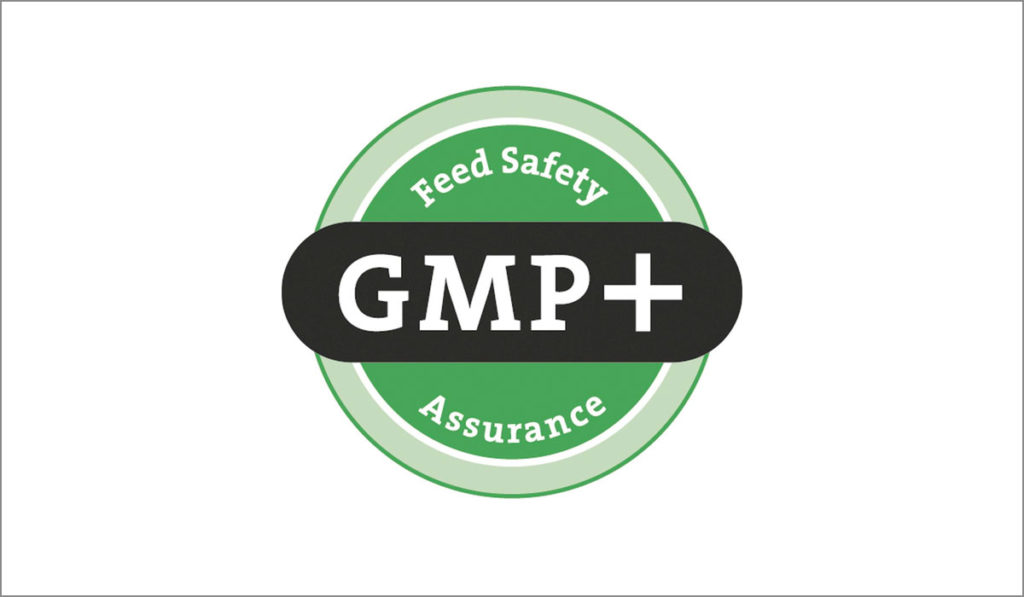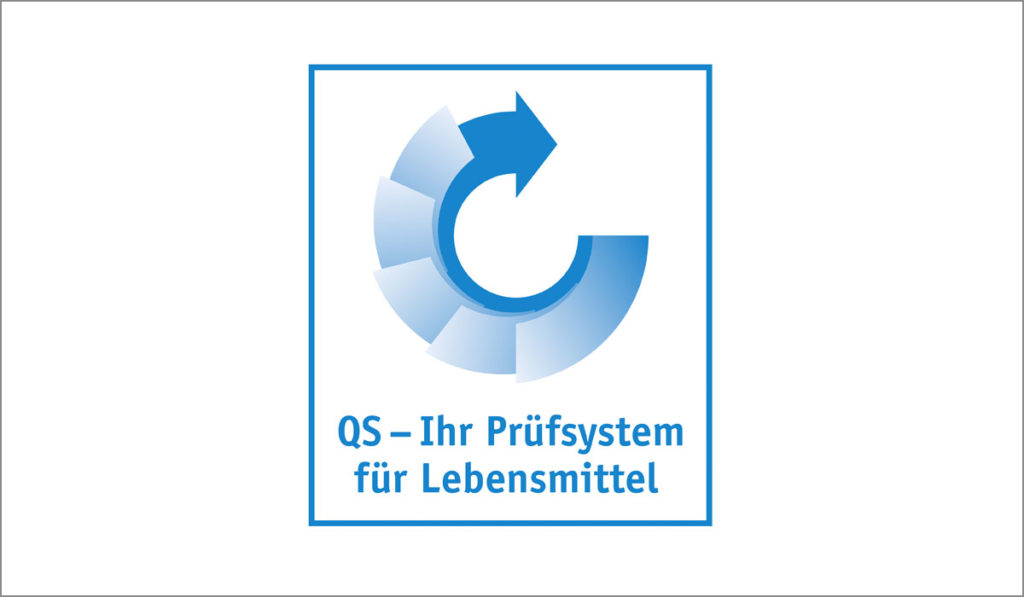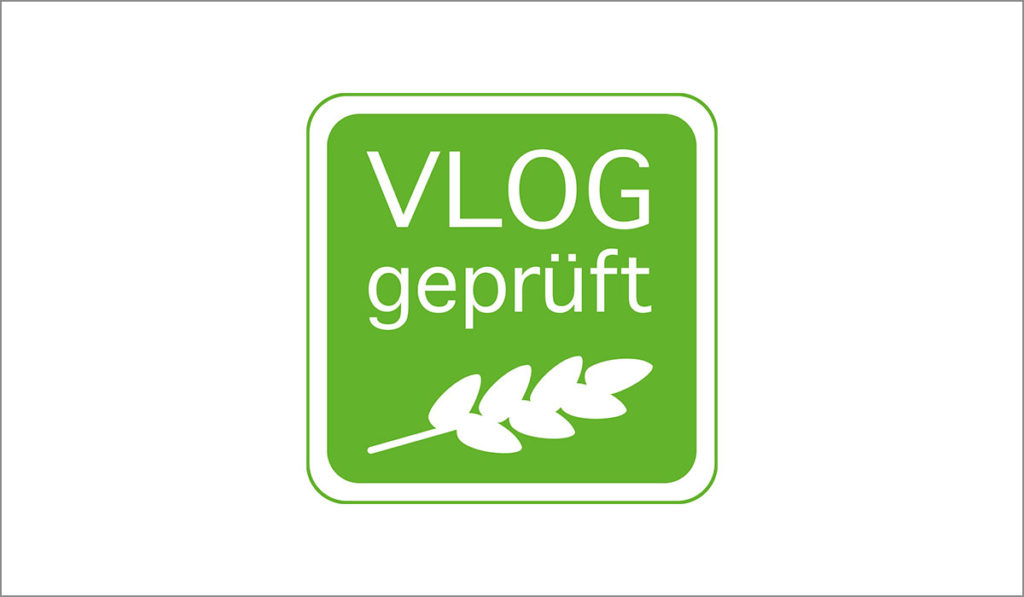Propylene glycol
Propylene glycol – also known as 1.2 propanediol or 1.2 propylene glycol – is primarily used as a high-energy supplement for feeding ruminants and dairy cattle, particularly during the lactation phase.
- Atco
- Products
- Liquid feed
- Propylene glycol
What is propylene glycol?
Propylene glycol is a colourless, clear, moisture-absorbing liquid in pharmaceutical quality (MPG USP) that can be mixed with alcohol and water. The chemical name for the polyvalent alcohol propylene glycol is 1.2 propanediol. It is industrially manufactured through the hydrolysis of propylene oxide – i.e. (bio)chemical splitting in reaction with water. Its primary uses are as a component in solvents, hygiene articles and as a feed supplement for dairy cows. As a feed supplement for dairy cows, it is able to cover the nutritional needs of high-yielding cattle and prevent ketosis – which refers to the process when the body burns its own fat reserves.
About propylene glycol available from ATCO
Like all our products and Feed , propylene glycol from August Töpfer & Co. comes from carefully monitored and verified production and is independently certifiedindependently certified in accordance with EU Eco Directive 834/2007 and quality assurance standards. As a wholesaler and distributor in the food and non-food sector, we can look back on a history steeped in tradition. We have been maintaining a reliable network of close partners in import, export and production since 1912. Our propylene glycol is the ideal supplement for your dairy cow feed, ensuring the supply of energy for dairy cows during the lactation phase. Moreover, propylene glycol helps prevent ketosis and supports metabolic stabilisation. Please do not hesitate to contact us if you have any questions about our products.
Propylene glycol: contents
In its final chemical state as a polyvalent alcohol, 1.2 propanediol is a clear liquid that has a hydroscopic effect – i.e. it attracts and binds water and moisture. It is soluble in water and alcohol, regardless of the mix ratio, but cannot be mixed in fatty oils. It has the following contents as cattle feed:
Dry mass (g): 990
Crude ash (g): 0
Net energy lactation (MJ): 9.8
Metabolic energy (MJ): 14.7
Sodium (g): 0
1.2 propanediol: production
1.2 propylene glycol is produced using an industrial chemical process. Propane glycol is obtained through the hydrolysis of propylene oxide, i.e. splitting in reaction with water. Depending on the producer, this involves a high-temperature process at 200-220 °C (without catalysis) or a catalytic process at 150-180 °C with the use of ion exchange resin or small quantities of sulphuric acid or alkalis. This chemical production process results in a product containing around 20 percent 1.2 propylene glycol, 1.5 percent dipropylene glycol and low amounts of polypropylene glycol, which can be cleaned through rectification (distillation of the mixture).
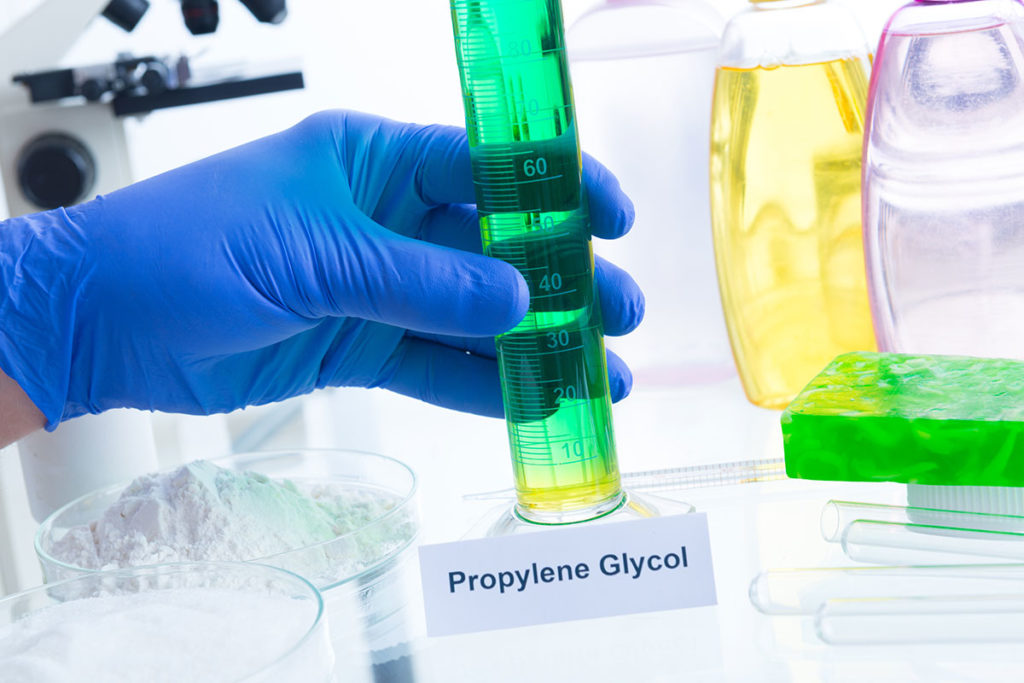
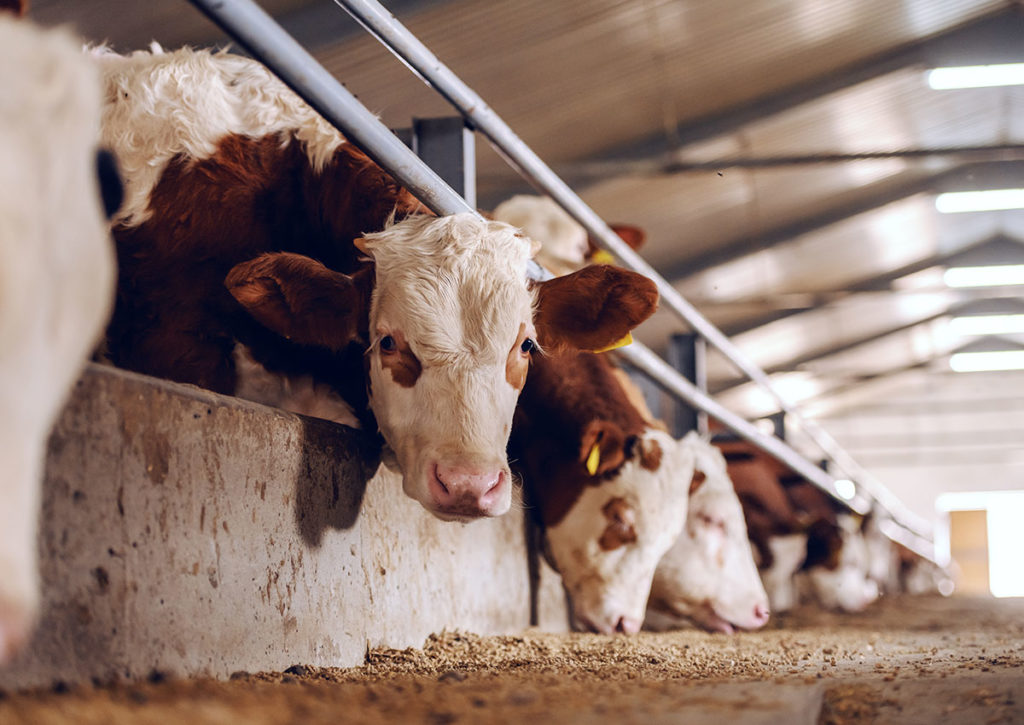
1.2 propylene glycolfor feeding dairy cows
Propane glycol is a relatively new supplement for feeding dairy cows. It can help satisfy the growing capacity requirements with a sufficient supply of energy and optimise fodder value during the lactation phase, for instance. The supplementation of feed rations and strategies with 1.2 propylene glycol has become common practice during the transit phase of calves as well as during the lactation phase. It’s also recommended for ketosis prevention, in order to protect the fat reserves of dairy cows and stabilise metabolism. The recommended dosage for ruminants is around two percent in feed for beef cattle and dairy cows and 300 grams for each fattening bovine from 200 kilograms. A maximum daily limit of 800 grams per animal is advised.
Our propane glycol is certified:
